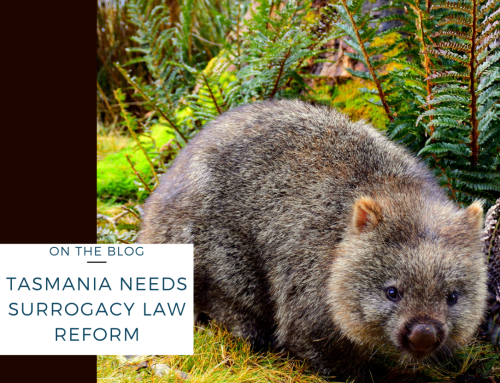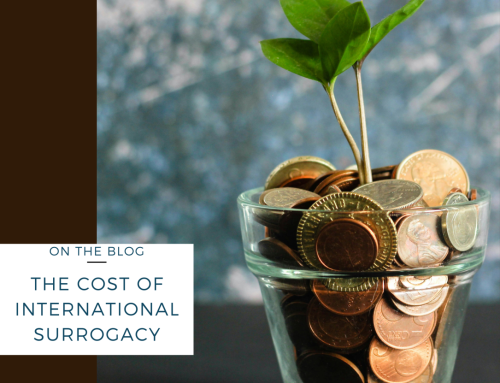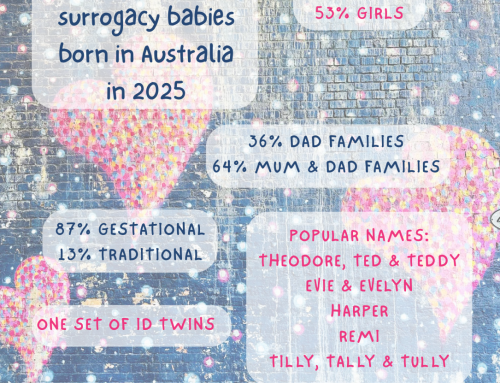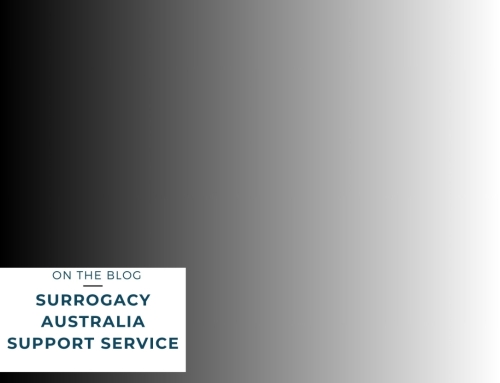In the evolving landscape of fertility and surrogacy, and commercial surrogacy expos and international shows have become prominent platforms for intended parents seeking guidance, connection, and access to clinics and agencies. These events often present a glossy, welcoming image: rows of booths, friendly consultants, colourful brochures, and inspiring success stories. For many, they offer the hope of finding a clear path through what can be a confusing and emotional journey.
This article was originally published by the Progress Education Trust in Bio News, 2 June 2025.
But behind the polished presentations and sponsorship banners lies a more complex and, at times, troubling reality: commercial shows are just that – commercial. Attendance by a clinic or agency does not guarantee ethical standards, legal compliance, or even basic transparency. And too often, the hopeful attendee assumes that presence at such a show is a seal of approval. That assumption can be costly – financially, emotionally, and legally.
A commercial space, not a regulated one
It’s easy to understand the appeal of these events. The fertility journey is intensely personal, frequently daunting, and often marked by a sense of isolation. Commercial surrogacy expos promise community, knowledge, and access. For intended parents overwhelmed by options and misinformation, a show that brings international providers into one space offers the illusion of clarity.
From a business perspective, expos are also highly lucrative. Clinics and agencies pay handsomely for stall space, speaking opportunities, and premium sponsorships. Many see it as a vital marketing investment. Some operate within ethical frameworks and offer real value. But others are there simply to sell, and they are not always transparent about what – or who – they are selling.
Services that sponsor events and trade shows should ensure they are putting surrogacy and ethics at the forefront of their decisions.
A market with minimal oversight
There is little or no independent vetting of who can exhibit or present at these events. Organisers are rarely in a position to investigate the practices of each participant. And while the organisers may have terms and conditions for exhibitors, these are business documents, not consumer protections.
Some expos take place in jurisdictions with strong surrogacy regulations. Others, particularly online or international events, cater to global audiences and operate with little regulatory scrutiny. In either case, it’s often unclear to the average attendee which participants are bound by which (if any) legal or ethical standards.
This has opened the door for agencies and clinics that operate in legally ambiguous environments, or promote arrangements that may be contrary to the law in the attendee’s home country. A commercial agency based in a country with minimal surrogacy regulation may freely promote its services at a UK or Australian event, even though many of its practices would be unlawful if carried out locally.
We should be decriminalising international commercial surrogacy and regulating the industry that profits from surrogacy.
The risk to intended parents
At these events, the boundaries between education and marketing are often blurred. The result is a dangerous grey area where intended parents may be misled, exploited, or drawn into unethical or illegal arrangements without realising it. I’ve spoken with numerous clients who assumed that if an agency or clinic was presenting at a major expo, they must have been checked and verified.
Professionals attending such events – lawyers, clinicians and mental health practitioners – provide tacit endorsement by attending and presenting alongside unregulated providers. Expo hosts rely on these endorsements.
An agency may boast high success rates but fail to disclose that it relies on poor legal frameworks and scrutiny, or that it has no safeguarding mechanisms in place for surrogates. A promise of a smooth and efficient exit cannot be guaranteed in a rapidly evolving environment.
Sometimes, the problem is not overt illegality but something more subtle: coercive marketing, overpromising, emotional manipulation, and exploitation of desperate individuals. Intended parents are as vulnerable to exploitation as surrogates.
The need for critical engagement
My advice for intended parents is to approach any fertility or surrogacy expo with a healthy dose of scepticism. Ask questions – not just about success rates and pricing but also about the legal framework, donor and surrogate welfare, and transparency. If a provider seems vague or evasive, consider it a red flag.
Intended parents must do their homework. Just because a clinic appears at a fertility show does not mean it is endorsed by any authority. Look for independent reviews, check whether the clinic is registered with appropriate medical or regulatory bodies, and speak to other intended parents about their experiences.
Most importantly, seek professional advice early. A lawyer familiar with cross-border surrogacy and fertility law can identify risks and help you to navigate complex jurisdictional issues. In several Australian states, for instance, engaging in commercial surrogacy arrangements overseas may expose you to criminal liability, even if promoted at an international expo. These nuances are rarely explained at events, because – quite frankly – they don’t help sales. Intended parents should obtain independent legal advice from a practitioner in the destination country.
Responsibility of organisers and the role of professionals
While much of the burden falls on intended parents to be vigilant, organisers of expos and commercial shows also have a responsibility to consider whom they allow into their events. There is a real ethical imperative to conduct basic checks on participants, avoid promoting unlawful arrangements, and educate attendees about legal and ethical considerations – not just commercial ones.
Fertility and surrogacy professionals – including lawyers, clinicians, counsellors, psychologists, and support networks – also play a crucial role in balancing the conversation. Many of us attend expos not to sell but to advocate, educate and provide a more grounded perspective. We can help to fill the gap between marketing and reality, between emotion and legal consequence.
Building a safer future
The fertility and surrogacy industry is growing. That growth brings opportunity, but also risk. Commercial expos are not going away, nor should they. When done well, they offer a valuable space for connection and learning. But we must acknowledge that they are not neutral territory – they are curated, commercialised marketplaces.
We owe it to intended parents, donors, surrogates and to the persons born, to demand more transparency, more oversight, and a more ethical framework for these events. Until that happens, the message must be clear – buyer beware.
Attending a show is not a guarantee. It is just one step on a complex journey. And while hope is powerful, it must be paired with caution.
If you are new to surrogacy, you can read about how to find a surrogate, or how to become a surrogate yourself. You can also download the free Surrogacy Handbook which explains the processes and options.
Sarah has published a book, More Than Just a Baby: A Guide to Surrogacy for Intended Parents and Surrogates, the only guide to surrogacy in Australia.
Looking for a surrogate and not sure where to start? We Need a Surrogate – What’s Next? And if you have a surrogate or intended parents, you can get started on the surrogacy process.
You can read a broad overview for surrogacy in Australia and how it works.
You can find more information in the Blog, by listening to episodes of the Surrogacy Podcast. You can also book in for a consult with me below, and check out the legal services I provide.








